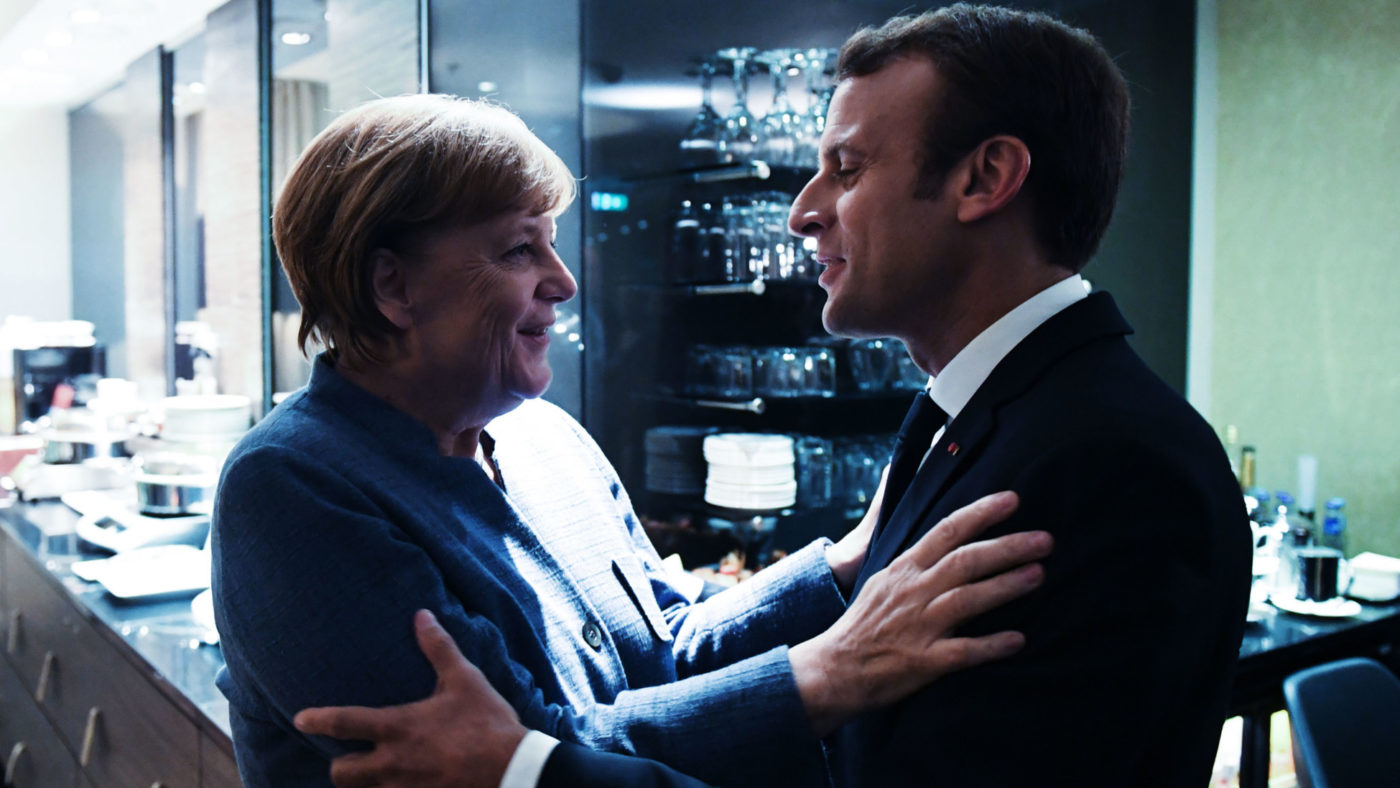Emmanuel Macron’s speech at the Sorbonne last week outlined a bold vision for changes to the EU. The bloc needs to become a coherent geopolitical force, with common defence, intelligence, migration, and asylum policies.
The eurozone itself needs to be reformed too, he argued, by creating a common budget, overseen by a eurozone finance minister and by the European Parliament. Its revenue would come from taxes imposed on digital services, environmental levies, and in the future also from a common European corporate tax base.
In a bow to the looming coalition forming in Germany, which will likely include Ordoliberals from the Free Democratic Party (FDP), France’s president dismissed the pooling of debt of eurozone countries as unnecessary. Few things have infuriated German conservatives and Ordoliberals as much as the ad hoc financial lifelines extended to countries on the eurozone’s Mediterranean periphery, through financial vehicles operating outside of the system of European treaties.
In the 2013 election, FDP failed to enter parliament, reaping the whirlwind of the decisions made in coalition government with Angela Merkel’s Christian Democrats: first the creation of the European Financial Stability Facility (EFSF) and later to the permanent European Stability Mechanism (ESM).
In fact, the populist Alternative for Germany (AfD) grew primarily as a response to those policies, drawing support from the FDP’s electorate. The party is unlikely to make the same mistake again. Earlier this year, the leader, Christian Lindner, suggested that Greece leave the eurozone in order to restructure its debt and devalue.
And Ordoliberals have a point. Without a strong sense of a collective European “we”, sizeable financial transfers between the eurozone’s countries are bound to backfire.
But the problem goes beyond the issue of public debt, which Mr Macron deliberately set aside. The mere existence of the eurozone’s budget, which would go beyond the insurance against financial risks currently provided by the ESM, has redistributive implications.
Characteristically, the French president eschewed the question of how the eurozone’s resources ought to be spent. The genuine European public goods that he did focus on in the speech, including defence and asylum policies, are of great relevance also for EU states that are currently not in the eurozone and should really be tackled by EU-27, not just by eurozone members.
Macron also omitted to mention monetary policy. What made the eurozone’s crisis so severe was the reluctance of the European Central Bank (ECB) to provide the continent’s economy with liquidity. Instead, the money supply shrank dramatically at early stages of the crisis and countries such as Greece were subjected to protracted periods of deflation.
In early 2011, the ECB even increased the rate on main refinancing operations, assuming that a recovery was underway. It was only after ECB President, Mario Draghi’s, “whatever it takes” speech, in September 2012, that the bank started a significant programme of asset purchases, in spite of vocal opposition coming from conservative and Ordoliberal circles in Germany.
Germany’s historic aversion to inflation helped turn the eurozone’s post-2008 crisis into a re-run of the Great Depression, complete with the rise of the populist far-right across the continent. Similarly, countries that remained on the gold standard until late in the 1930s were forced through painful internal devaluations, with often dramatic social and political consequences.
For the common European currency not to act as a monetary strangulation mechanism in the future, a Franco-German bargain over the future governance of the eurozone will have to go hand in hand with a shift towards a monetary policy regime that will stabilise the growth of nominal spending in the eurozone, rather than zealously keeping the inflation rate down and forcing vulnerable economies through painful cycles of deflationary deleveraging. But this will doubtless be regarded sceptically by the emerging German coalition.
Putting aside his characteristically French dirigiste instincts, manifested in the frequent refrain of “Europe that protects”, Mr Macron’s broader defence of the European idea is to be applauded. The European project, for all its flaws, offers perhaps the only viable platform through which liberal democracies of the continent can defend their shared interests and keep Europe economically open, prosperous, and at peace.
However, the details of the compromise that eurozone countries can reach, as well as its implications for EU countries outside of the eurozone, are going to be far more important than the French president’s uplifting rhetoric.


